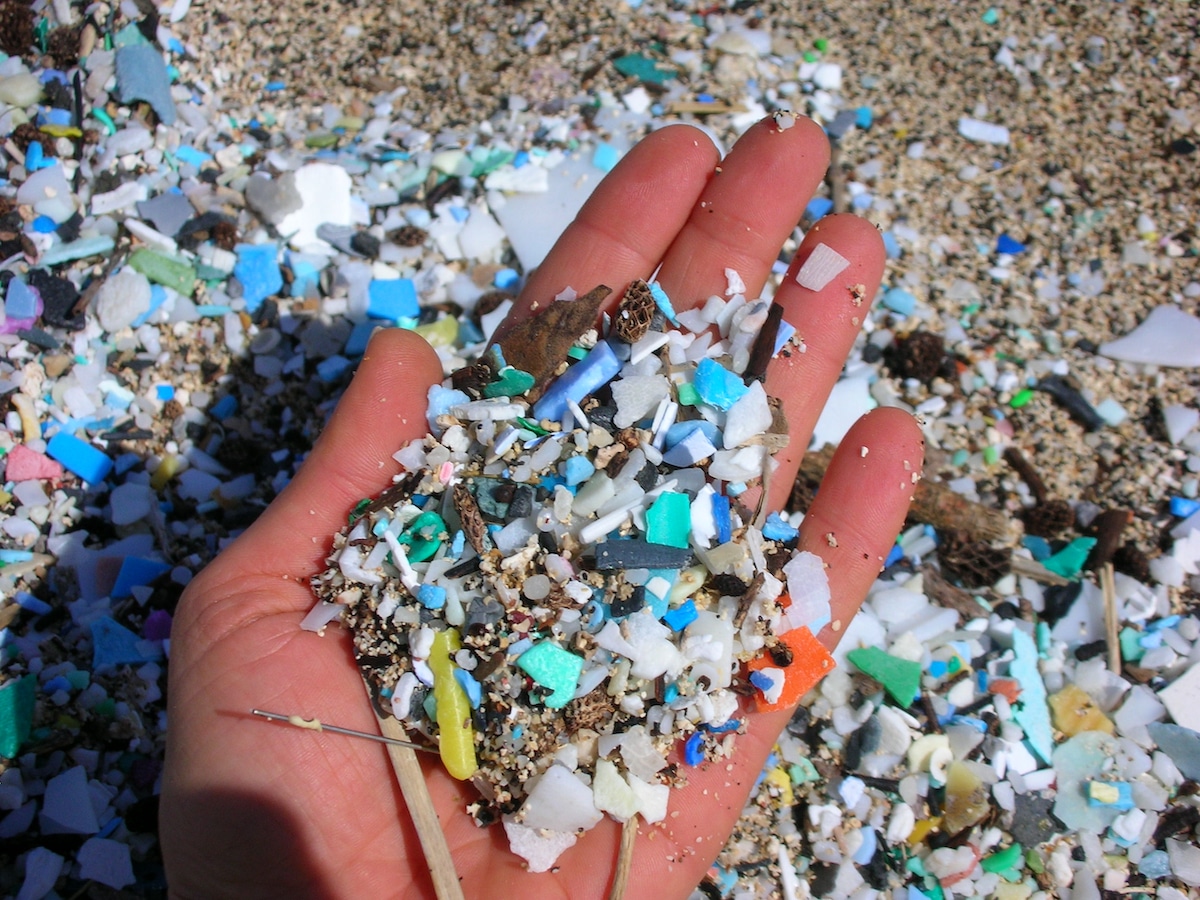‘Unprecedented Levels’ of Plastics Entered World’s Oceans After 2005, Study Finds

 Why you can trust us
Why you can trust us
Founded in 2005 as an Ohio-based environmental newspaper, EcoWatch is a digital platform dedicated to publishing quality, science-based content on environmental issues, causes, and solutions.
The amount of plastic floating in the world’s oceans rose by an “unprecedented” degree over the last decade and a half to reach more than 170 trillion plastic particles in 2019.
That’s the shocking finding of a new study from scientists at the 5 Gyres Institute, the University of California, Riverside, the Stockholm Resilience Center and an international host of academic and environmental research organizations. The research, published in the open access journal PLOS ONE Wednesday, presents another datapoint in favor of a robust UN treaty to reduce plastic pollution.
“We’ve found an alarming trend of exponential growth of microplastics in the global ocean since the millennium, reaching over 170 trillion plastic particles,” study lead author Marcus Eriksen, co-founder and researcher from The 5 Gyres Institute, said in a statement shared with EcoWatch. “This is a stark warning that we must act now at a global scale. We need a strong, legally binding UN Global Treaty on plastic pollution that stops the problem at the source.”
Ocean plastic is an environmental problem of, well, oceanic proportions. It harms marine life when animals get tangled in it, choke on it or mistake it for food. Just last week, scientists described a new disease called “Plasticosis,” defined as the plastic-caused scarring in the stomachs of seabirds.
As ocean plastics break down into microplastics, they can make their way up the marine food chain to humans. They have even been found in our blood. While the health impacts of consuming these tiny pieces of plastic remain unclear, there is evidence on the cellular level that they are not good.
One challenge in understanding the scale of the ocean plastic crisis has been figuring out exactly how much plastic now floats in the ocean. Prior studies had mostly counted plastic in northern hemisphere oceans near highly industrialized countries or looked at plastic accumulation over a shorter amount of time. The new study innovated by looking at data on ocean surface layer (OSL) plastic from 11,777 observation stations in the North Atlantic, South Atlantic, North Pacific, South Pacific, Indian Ocean and Mediterranean Sea between 1979 and 2019. Between 1979 and 1990, no clear trend emerged. Between 1990 and 2005, the amount of plastic fluctuated. It was after 2005 that the pollution wave really hit.
“Our study shows a significant increase since the turn of the century for the global ocean abundance and distribution of plastics in the OSL,” the study authors wrote.
Specifically, they calculated that, by 2019, there were between 82 and 358 trillion plastic particles, with a mean of 171 trillion particles, floating in the ocean, mostly as microplastics. Together, this plastic flotilla weighed between 1.1 and 4.9 million tons, with a mean weight of 2.3 million tons. The researchers speculated that the rapid uptick in ocean plastics may have been caused by the meteoric rise in plastic production, changes in plastic waste management and the breakdown of larger plastic pieces that continued to enter the ocean from shores and rivers. While there are still uncertainties when it comes to measuring all the plastic in the world’s oceans, the upward trend found by the scientists corresponds with similar trends observed on the world’s beaches since 2005.
“These parallel trends strongly suggest that plastic pollution in the world’s oceans during the past 15 years has reached unprecedented levels,” the study authors concluded.
The new study comes as the UN is developing a treaty to control plastic pollution. The first round of negotiations concluded in December 2022, and a final treaty is due by 2024. It also comes a little more than a week after a report from the Back to Blue foundation found that plastic consumption could nearly double in G20 countries by 2050 without a highly ambitious treaty that includes a ban on unnecessary single use plastics, a mechanism to hold plastic producers responsible for the entire lifecycle of their product and a tax on making plastics from new petroleum products.
“The exponential increase in microplastics across the world’s oceans is a stark warning that we must act now at a global scale, stop focusing on cleanup and recycling, and usher in an age of corporate responsibility for the entire life of the things they make,” Eriksen said in a further statement emailed to EcoWatch. “Cleanup is futile if we continue to produce plastic at the current rate, and we have heard about recycling for too long while the plastic industry simultaneously rejects any commitments to buy recycled material or design for recyclability. It’s time to address the plastic problem at the source.”
Subscribe to get exclusive updates in our daily newsletter!
By signing up, you agree to the Terms of Use and Privacy Policy & to receive electronic communications from EcoWatch Media Group, which may include marketing promotions, advertisements and sponsored content.

 233k
233k  41k
41k  Subscribe
Subscribe 




